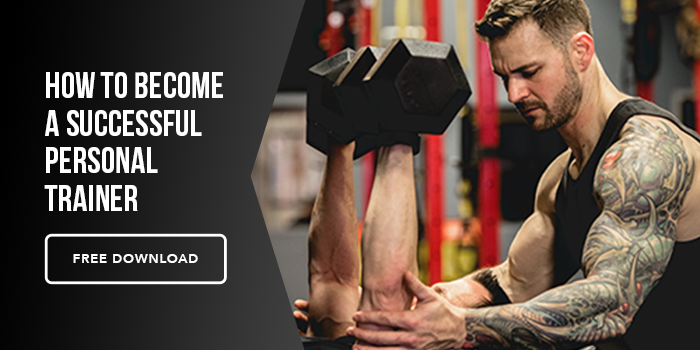A lot of you reading or listening to Mind Pump might have considered becoming or are currently active personal trainers. There’s no doubt between what it took to get your certification and if you’ve listened to the podcast for even a year, what kind of knowledge you have over the average person. But maybe now you have a little imposter syndrome.
You find the more you learn, the less you realize you know. Or maybe you've overanalyzed other trainers coaching styles in the gym, and are afraid to show your stuff. Whether you have imposter syndrome, or simply just want to make sure you’re checking all the right boxes, I’d like to go over how to be the best personal trainer at your gym.
1) Asses their Clients
The most foundational starting point. Are you spending the time to find your clients imbalances, injuries, weaknesses? You’d be surprised at how little this is actually done. Most trainers just want the money, and therefore just start them on compound lifts without actually finding out what they need.
You should be asking about their current nutrition habits, lifestyle, environment, support system, and willingness to change. Training is more than just training. It’s understanding the client's concerns, setbacks, and what actuallybrought them here in the first place.
2) Track Their Progress
What gets measured gets improved. Is the hard work paying off? They should be:
- Checking for adherence to the SMALL nutrition behaviors they’ve given you
- Measuring your body so they can see if you’re gaining size/losing weight
- Tracking performance in the gym - are you stronger? Faster?
- Photos - can we look back week to week and see how far you’ve come since when you first started? Accountability.
- A Plan - did they even go over an outline for how they plan to help you achieve your goals? Or are they winging it?
3) Always Learning
Whether it’s overconfidence or ignorance, most trainers don’t seem to do any more learning once they get their certification. They feel as though, because they passed the test, that’s all they need. No. Passing the test just ensures you’re competent ENOUGH to not injure someone. That’s fine, if you want to be a bare minimum trainer. A GREAT trainer will
- Have done internships or worked under respectable coaches in the field
- May have other certs, for more specific areas that you find you encounter most often
- An elite trainer is CONSTANTLY reading and seeking out information from those he/she aspires to be to get to that level
You need to be showing that you want to continue to learn and grow in this field you’re calling their career.
4) Understanding the job
You need to be slowly implementing new behaviors that allow them to achieve results. This is a marathon not a sprint. If you can’t help them make changes they see themselves still doing a year after they’re gone, then you haven’t done your job.
5) Utilize ALL tools to help you change
Training you in the gym is one thing. What you do the other 23 hours is another.
- Make sure they’re using exercise AND nutrition to help you progress
- One size does NOT fit all. The program given to you should be unique and based off of your initial assessment
- Having the ability to adjust and adapt to any obstacle or setback you may have
6) Not doing it for the paycheck
At the end of the day it’s not about the money. It’s about then. You NEED to be caring about their wellbeing and overall mindset throughout the process. A great coach makes his or herself available those other hours of the day to help keep their clients accountable, and answer any questions they may have. After all, you know more about this process than them.






